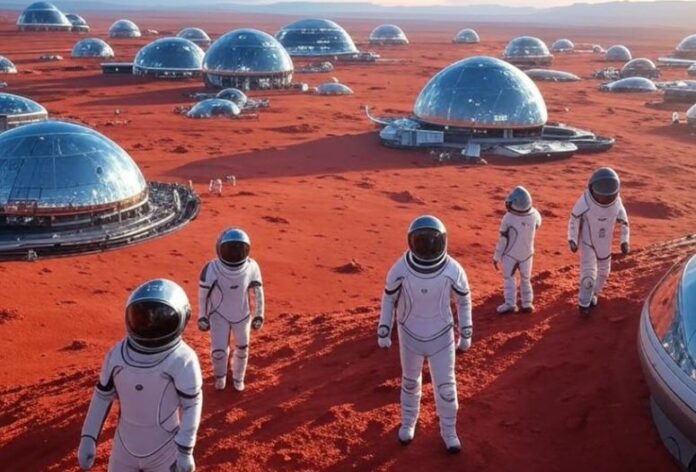SpaceX CEO Elon Musk has once again shared his grand vision for humanity’s future on Mars, announcing that the first city on the Red Planet, named Terminus, could be established in the next 20 to 30 years. Progress with Starship: With the ongoing development of SpaceX’s Starship program, which is designed for interplanetary travel and long-term habitation, the dream of a self-sustaining colony on Mars seems more attainable than ever. The Starship’s recent advancements include more frequent launches, each step bringing us closer to making Mars colonization a reality.
Mars for Everyone: Musk Envisions Open Access to the Red Planet: In his vision, Musk highlighted the potential for space travel to become democratized. “If Starship is ultimately successful, which I think it will be, if it’s not stopped by government regulations, then anyone who wants to go to the Moon or Mars or elsewhere will be able to go,” Musk stated. This vision extends beyond professional astronauts to include families, children, and ordinary citizens, fostering a new era of space homesteading.
Challenges Ahead: Musk was candid about the initial conditions on Mars. “To be clear, going to Mars at first will be difficult and dangerous. Not a luxury expedition, but a difficult one, much like the creation of America was,” he remarked, underscoring the pioneering spirit required for such an endeavor.
Despite the formidable challenges, Musk’s confidence in achieving a multi-planetary human species remains unshaken, with SpaceX at the forefront of this cosmic journey. The long-term goal is to create a thriving human outpost on Mars, contributing to a broader narrative of human expansion into the cosmos.
Key Points
First Mars City Timeline: Musk predicts Terminus, the first planned Martian city, could be built within 20-30 years.
SpaceX’s Role: Advances in the Starship program are making interplanetary travel and long-term habitation more feasible.
Mars for Everyone: If Starship succeeds without regulatory interference, anyone—including families and children—could travel to Mars.
Challenges of Early Missions: Musk warns that initial Mars journeys will be difficult and dangerous, comparing them to the hardships faced during the colonization of America.
Vision for a Multi-Planetary Future: Musk remains confident that humanity will expand beyond Earth, with SpaceX leading the effort.



